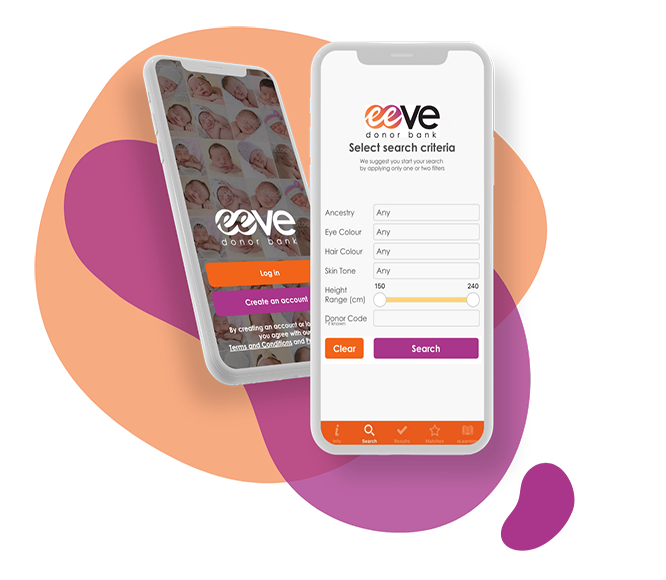Legalities and requirements
There are legal implications that need to be understood for anyone donating or receiving donated gametes or embryos. Therefore, carefully read the information presented in this section.
Eeve Donor Bank encourages all individuals and couples to seek independent legal advice before attending the donor program.
Legalities and requirements for donors, recipients and children born from donor gametes
Legal considerations
Eeve Donor Bank encourages all individuals/ couples to seek independent legal advice before attending the donor program.
Donor:
A donor-conceived person is entitled to know who their genetic parents are, should they want this information, once they turn the age of 18. Therefore, donors must consent to their identifying information being held by Eeve Donor Bank and the Victorian and New South Wales Central Registers. The information includes all medical and family history, identifying information about the gamete donor and the number and gender of persons conceived using the gametes provided by the same gamete donor. In the event of being contacted by a person born from donated gametes, Eeve Donor Bank will make reasonable effort to notify the gamete donor prior to the release of information.
Gamete and embryo donors are free to withdraw or vary their consent for donation as indicated in the relevant state legislation or regulations. Donors are entitled to some information about the offspring born. On request, Eeve Donor Bank can provide non-identifying information about the gamete recipient, including number, age and gender of persons born.
Donors are obliged to inform Eeve Donor Bank with changes of address, phone numbers and domiciliary status of writing.
The person conceived using donor gametes, and the donor of gametes, need to be protected from the consequences of having many siblings and offspring, respectively. Under the legislation, a donor is able to donate to 10 women in Victoria, 5 in New South Wales (this includes the donor and any current or former partner of the donor), and 5 in Western Australia world wide excluding the donor. In Queensland, there is no legislated limit for donations however, City Fertility has set a maximum of 10 as its policy position. This means that up to 10 or 5 women can have children, who are genetic siblings as a result of your donation. Please note there may be more than one child per family.
Recipient:
Donor recipients are entitled to some information about the gamete donor. Upon request, City Fertility can provide details of a donor’s medical history, family history and genetic test results that are relevant to the future health of the person born and the recipient of the donation, details of the physical characteristics of the gamete donor, and the number, age and gender of persons already born from the gametes provided by the same gamete donor and the number of families involved.
Child:
Persons born from donated gametes are entitled to know the details of their genetic origins. Therefore, donors must consent to the release of identifying details at City Fertility.
NHMRC ETHICAL GUIDELINES ON THE USE OF ART IN CLINICAL PRACTICE AND RESEARCH 2017:
Medical history, family history and any existing genetic test results that are relevant to the future health of the person who would be born (or any subsequent offspring of that person) or the recipient of the donation.
Details of the physical characteristics of the gamete donor.
The number, age and gender of the persons already born from the gametes provided by the same gamete donor and the number of families involved.
Identifying information about the gamete donor.
Any identifying information that any person born from the gametes of the same donor has consented to be released.
If the person has not yet reached the age of 18, sufficient maturity must be assessed by a suitably qualified professional prior to releasing the information. For further information about Central Registers in Victoria please refer to www.varta.com.au, in New South Wales please refer to www.health.nsw.gov.au, and in Western Australia please refer to https://www.rtc.org.au/.



